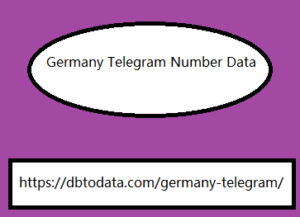Post by kmstfatema on Mar 10, 2024 3:47:13 GMT
Since Google was born way back in 1998, the world of search engines has changed profoundly. In particular, the way in which they classify pages based on the authoritativeness of the content. If in the past it was only keywords that determined whether or not your website should appear among the first results shown by Google, now keywords are no longer sufficient. New algorithms have been introduced that evaluate the authoritativeness of the website based on the depth with which it deals with a given topic. This is because users are no longer limited to entering simple words in the search bar but specific questions to which they expect an equally specific answer. Therefore , to guarantee the success of companies, SEO has been updated in favor of a new structure no longer based on keywords but on a model called topic cluster.
In this type of structure we have a main page Germany Telegram Number Data that acts as the fulcrum and introduction to many other pages that outline the main topic in all its aspects, providing the user with a multitude of contents. Each of these pages is linked in turn to the main page and to all the other pages that concern that topic. It is precisely these links that attract the attention of search engines which detect the "hub" page and identify it as an authoritative source on the topic, increasing its ranking and making it climb the ranking of results shown for a particular search. Throughout this article we will discuss the topic of topic clusters in depth. These are the main topics: From keywords to topic clusters: why?

From theory to practice: how to create a topic cluster Who determines the ranking of your website? The importance of keywords Topic cluster: the content Content promotion Finally: monitor page ranking New call-to-action Return to index ↑ From keywords to topic clusters: why? The reason why it was necessary to change the architecture of the websites is to be found in the change that occurred in user behavior. Initially, those who surfed the web inserted a series of related but fragmented keywords into the search engine bar. In 2019, however, users query Google by entering actual questions complete with all grammatical and spelling elements. Which is why keywords are no longer enough.
In this type of structure we have a main page Germany Telegram Number Data that acts as the fulcrum and introduction to many other pages that outline the main topic in all its aspects, providing the user with a multitude of contents. Each of these pages is linked in turn to the main page and to all the other pages that concern that topic. It is precisely these links that attract the attention of search engines which detect the "hub" page and identify it as an authoritative source on the topic, increasing its ranking and making it climb the ranking of results shown for a particular search. Throughout this article we will discuss the topic of topic clusters in depth. These are the main topics: From keywords to topic clusters: why?

From theory to practice: how to create a topic cluster Who determines the ranking of your website? The importance of keywords Topic cluster: the content Content promotion Finally: monitor page ranking New call-to-action Return to index ↑ From keywords to topic clusters: why? The reason why it was necessary to change the architecture of the websites is to be found in the change that occurred in user behavior. Initially, those who surfed the web inserted a series of related but fragmented keywords into the search engine bar. In 2019, however, users query Google by entering actual questions complete with all grammatical and spelling elements. Which is why keywords are no longer enough.
